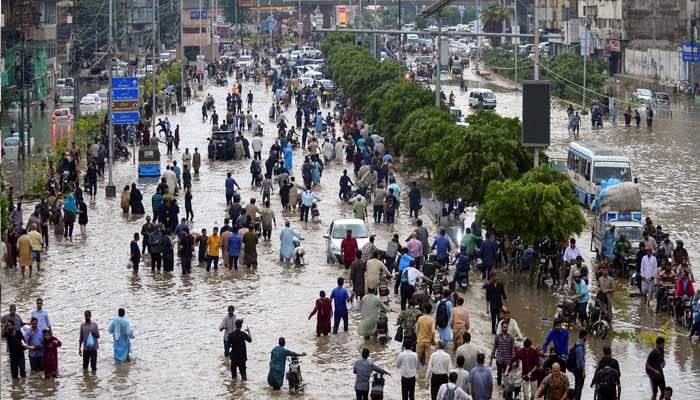by SAKIB SHERANI

“Underdevelopment occurs not because of lack of capital: capital can easily be raised; it occurs not because of lack of skilled people: people can be trained; it occurs because of the failure of a society to organise itself for development…” Albert O. Hirschman (The Strategy of Economic Development, 1958).
On Pakistan’s 78th independence anniversary, we have to ask ourselves a sobering question — why is the country that was born on the wings of hope, between promise and peril, and seemingly prospered for decades, in its current dismal state? Why are its human, social and economic development indicators competing with Afghanistan and sub-Saharan Africa? Why have numerous promised ‘game changers’ over the decades, from CENTO and SEATO membership to CPEC and SIFC, failed to deliver for the people?
The answer is simple as much as it is uncomfortable. Pakistan is not organised as a polity for development, let alone inclusive development. It is organised for elite extraction, appropriation, expropriation and enrichment. And the two models are not just incompatible, they are mutually exclusive.
A society is organised for development when its laws, institutions, cultural norms and incentives are deliberately structured to expand opportunity, raise productivity and channel resources towards the most optimal use for the widest common good. Economies that have successfully climbed the ladder of development, at least over the past five decades, display common characteristics. These include an emphasis on human capital development, high savings and investment rates, an equitable and non-discriminatory tax regime, responsible governance, high levels of transparency and accountability, institutional checks and balances against executive overreach as well as policy and regulatory capture.
Pakistan’s current organising principle as a polity is incompatible with development.
This is in sharp contrast to how Pakistan has been configured as a polity. To adapt Lant Pritchett et al’s quote, countries such as Pakistan “look like a state” but do not exhibit the foundational characteristics.
Pakistan has a Constitution but one that fails to restrain, to provide checks and balances; it has ‘law of the land’ without rule of law; governments without governance; buildings without institutions; projects without purpose; spending without impact; civil service without service; security agencies without security. Like many other Third World countries, Pakistan has been organised as a neocolonial project with local elites installed on behalf of former colonial powers. Two natural corollaries of elite capture are weakened institutional checks and balances, and extraction.
Dawn for more
